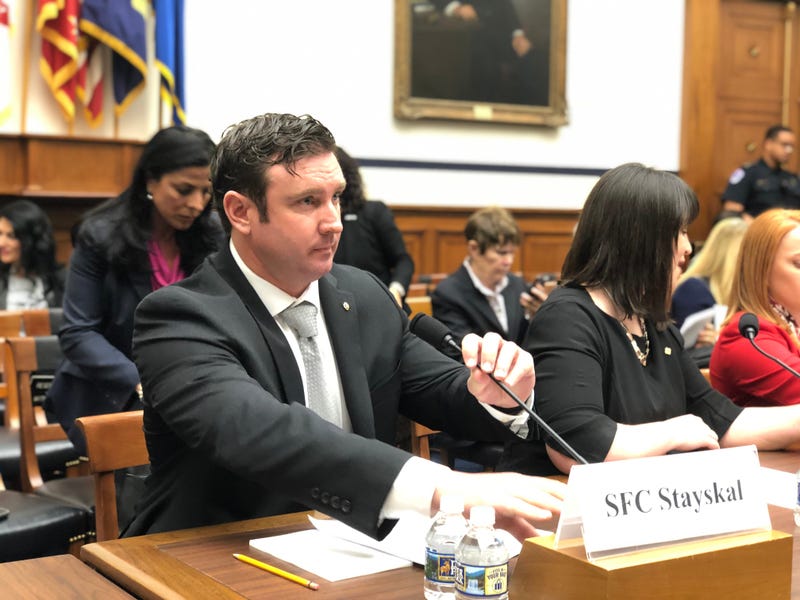
Service members and their advocates have fought for decades to overturn the Feres Doctrine, a 69-year-old Supreme Court decision that blocks troops and their families from suing the government for medical malpractice and other harm, including death.
After a military hospital repeatedly failed to tell him about a tumor in his lung, Sgt. 1st Class Richard Stayskal would later awaken in a civilian doctor's office to his wife's tears and news that he had stage IV terminal lung cancer and little time left.
The husband and father of two already served his country as a marine, where he took a bullet to the chest in Iraq. Later, he signed up again to become a Special Forces soldier. The enemy bullet couldn't stop him, but medical malpractice from military doctors will.
Stayskal has spent much of his time remaining fighting to overturn the Feres Doctrine. He's made trips from his Fort Bragg, N.C. home to Washington, D.C., hoping to get through to lawmakers.
Democrats included a measure to overturn Feres in an early version of the annual defense spending bill, the National Defense Authorization Act (NDAA). But months of negotiations, largely behind closed doors, resulted in a compromise bill that doesn't quite get there.
The compromise bill -- which passed the Senate Tuesday and now heads to the president's desk for final approval -- includes a section that would authorize "claims by members of the uniformed services against the United States for personal injury or death caused by medical malpractice." It does not overturn the Feres Doctrine or allow troops to file lawsuits, but potentially offers a much more limited path for relief through a new claims settlement process.
Specifically, the measure would direct the Secretary of Defense to "allow, settle and pay a claim against the United States for personal injury or death incident to the service of a member of the uniformed services that was caused by the medical malpractice of a Department of Defense healthcare provider."
The bill allows the Defense Department to decide the claims made against it, without a neutral third party, such as a judge in a lawsuit.
The Pentagon must also, at least once a year, submit a report to Congress on the number of processed claims and their resolutions.
The legislation does not provide guidance on how the Secretary of Defense might decide which claims would be granted and receive payouts, but does specifically say that any approved claim "is not allowed to be settled and paid under any other provision of law."
The entire defense spending bill now moves to President Donald Trump for final signature. The president previously signaled he planned to approve it.
Earlier this year, the Supreme Court declined to review a challenge to Feres.
The court denied a petition to hear a wrongful death case brought by U.S.Coast Guard Lt. Commander Walter Daniel, husband of Lt. Rebekah Daniel, a Navy nurse stationed at Naval Hospital Bremerton in Washington, who died during labor in 2014.
Rebekah gave birth to a daughter at the hospital where she worked but died of blood loss hours later. Daniel and his attorneys allege that Rebekah died because she lost “nearly one-third” of the blood in her body because doctors and nurses at the hospital failed to prevent postpartum hemorrhaging.
The May decision said that Justice Ruth Bader Ginsburg “would grant the petition” for the court to review Daniel’s case.
Justice Clarence Thomas wrote a dissenting opinion from the court’s denial to review the case. And it’s not the first time Thomas has urged the court to review Feres.
“Feres was wrongly decided and heartily deserves the widespread, almost universal criticism it has received,” Thomas wrote. “I write again to point out the unintended consequences of this court’s refusal to revisit Feres.”
